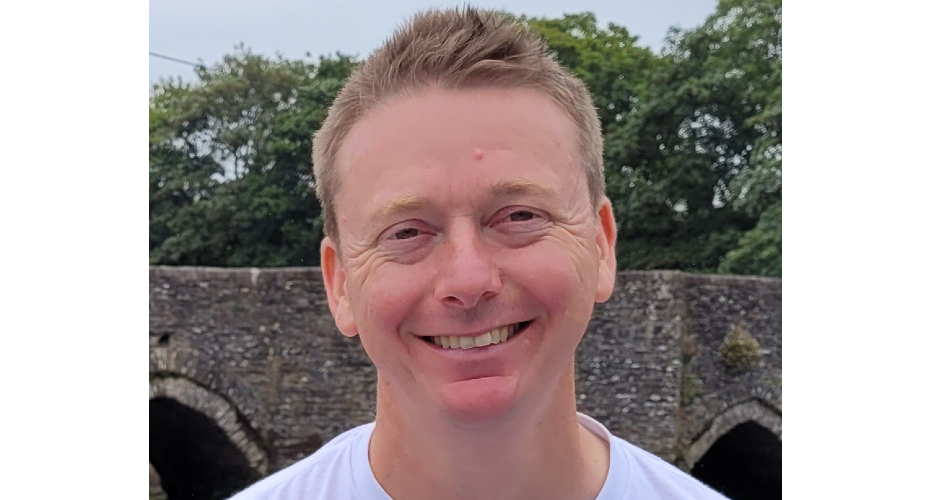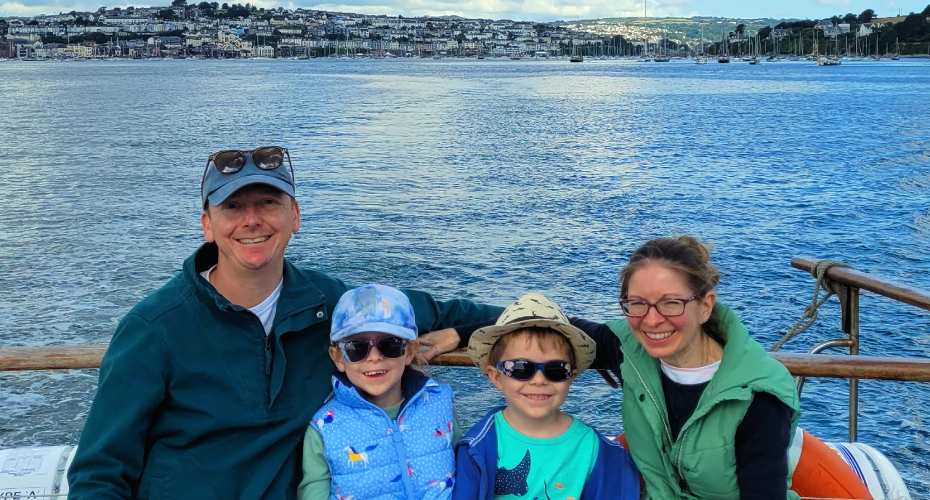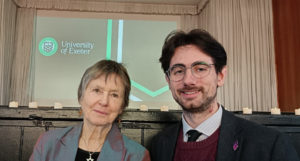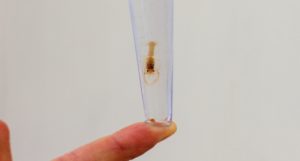Penryn Perspectives: Dr Andrew Pye

“I never thought I would be able to come back to Cornwall and have an academic career. It was an impossibility – but things just aligned.”
Dr Andrew Pye
Dr Andrew Pye is Associate Professor, Senior Tutor and Co-Director of Equality, Diversity and Inclusivity for the Centre for Ecology and Conservation. As Undergraduate Senior Academic Tutor, Andy has a strong focus on staff tutoring, peer tutoring and the undergraduate experience in Penryn. In recognition of that work in 2018 he received the highest teaching accolade in the UK, when he was awarded a National Teaching Fellowship by Advance HE. Prior to joining the University, Andy was a biomedical scientist for the former Peninsula College of Medicine and Dentistry, based at the Royal Cornwall Hospital (Treliske) in Truro.
Offering his Penryn Perspective, Andy explains how supporting students remains his abiding passion, and how the campus has enabled his children to experience a Cornish family life as he did.
“You could say that my history with the Penryn campus dates to a time before it was built. I started in 2003 studying for a PhD at the Knowledge Spa in Truro (Exeter’s other Cornwall campus), as part of the Peninsula College of Medicine and Dentistry. I knew that a campus was under development in Penryn, but I had no idea at that time that it would come to influence my career and life in the way that it has.
“I had grown up in Truro, on the Malabar council estate, and I had never even thought about going to university, let alone working for one. I always enjoyed science at school, and knew that I wanted to be a scientist, but as far as I could see, there were no scientists in Cornwall! That was why I chose to go into biomedical science because that would enable me to work in a lab in a hospital, and that was something that I could do in Cornwall.
“But as I said, the very thought of university was a strange and alien one. I was part of a quiet group of working-class friends, and I was the only one of us to go off to university (studying Biomedical Sciences) in Cardiff, which would be my home for the next four years.
“When I finished my degree, my parents sent me a clipping from The West Briton advertising for a PhD. I mean, whoever heard of a local newspaper advertising PhDs?! But I thought it sounded interesting as it was focused on skin cancer. So, I applied, and I got it, and came down to be based at the Knowledge Spa in Treliske. I enjoyed it and progressed on to post-doctoral work, and then teaching, splitting my time between Truro and Plymouth. I then ended up securing two permanent job offers at once – one at Plymouth and the other at Exeter, based in Penryn. I made my choice, took the plunge, and started working on the Penryn campus in 2009.
“The role was as a teaching fellow, lecturing in zoology, and offering pastoral support to students. At that time, the campus was relatively small, and when you had departmental meetings, you could literally walk down one corridor and see everyone. The size made it a fun place to work. We only had 50 students in the year group when I started –150 across the three years of the undergraduate programme – and now we have 240 per year, and well over 800 in total. I remember there were just the two main buildings when I arrived, it has felt like a new one has opened every year since!
“While the scale has undoubtedly increased, and with it, the challenge of dealing with so many more students, I am still doing the things that I am most passionate about. That is meeting students, teaching them, and helping and supporting them through their degree, especially in my new role as Co-Director of Inclusivity. The fundamentals haven’t changed, even though the infrastructure has, and those lectures and meetings have moved from small offices and classrooms to bigger lecture theatres! That is why being awarded a National Teaching Fellowship was such a personal highlight for me. It was external recognition that the work I’m doing here in Cornwall is held in high esteem at a national level.
“When I talk to people in the community, whether fellow parents at my children’s school, or through my support of Falmouth Roadrunners, many are still surprised that there is such a broad interdisciplinary community here, that you can do Biology, Engineering, Politics, English, here in Cornwall. Even after the campus has been in Cornwall for 20 years, there is still more for us to do to be seen by Cornish kids.
“Growing up in Cornwall, I always knew that I wanted to come back one day –to have been able to do that so early in my career has been wonderful. I feel so lucky that, like my parents before me, I am able to walk my children to school, then commute to work on foot! We spend the weekends walking the coast path or meeting family around Truro and Falmouth. I would never have imagined I would be able to combine my Cornish life with a professional career in academia in Cornwall.”




